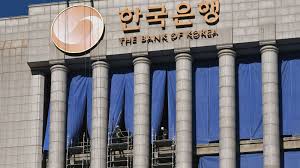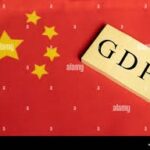
- November 28, 2024
- By: Admin1_blog
- Asia Market, Indices
Anniek Bao
Asia-Pacific markets traded mostly higher on Thursday after Wall Street rally stalled overnight and as investors assessed a surprise interest rate cut by South Korea.
The U.S. personal consumption expenditure price index, or PCE, rose 2.3% on an annualized basis, accelerating from 2.1% in September. The so-called core inflation, which excludes food and energy prices, climbed 2.8% in the 12 months through October, up from 2.7% in the previous month.
Both matched the expectations from economists polled by Reuters, according to LSEG data.
The Bank of Korea unexpectedly cut its benchmark interest rate by 25 basis points to 3.0%. Market watchers polled by Reuters had forecast the BOK to pause its policy easing this month, following a 25 bps cut in October.
South Korea’s blue-chip Kospi index traded flat while the small-cap Kosdaq climbed 0.39%.
Japan’s Nikkei 225 ticked up by 0.73%, while the broad-based Topix added 0.81%.
Australia’s S&P/ASX 200 jumped 0.45% to a new record close of 8,444.3.
Hong Kong’s Hang Seng index declined 1.32%, giving back gains after logging its largest jump this month on Wednesday. Mainland China’s CSI 300 index was down by 0.60%.
| TICKER | COMPANY | NAME | PRICE | CHANGE | %CHANGE |
|---|---|---|---|---|---|
| .N225 | Nikkei 225 Index | *NIKKEI | 38349.06 | 214.09 | 0.56 |
| .HSI | Hang Seng Index | *HSI | 19364.72 | -238.41 | -1.22 |
| .AXJO | S&P/ASX 200 | *ASX 200 | 8444.3 | 37.6 | 0.45 |
| .SSEC | Shanghai | *SHANGHAI | 3304.22 | -5.56 | -0.17 |
| .KS11 | KOSPI Index | *KOSPI | 2504.66 | 1.6 | 0.06 |
| .FTFCNBCA | CNBC 100 ASIA IDX | *CNBC 100 | 9939.29 | 0.77 | 0.01 |
Overnight in the U.S., declines in big technology names pulled markets lower in a thin trading session.
Chipmaking powerhouse Nvidia lost more than 1%, while Meta Platforms slid 0.8%. Dell and HP dropped more than 12% and 11%, respectively, following weak earnings forecasts.
The S&P 500 declined 0.38% to 5,998.74, snapping a seven-day winning streak. The Nasdaq Composite lost 0.6% to end at 19,060.48. The Dow Jones Industrial Average lost 138.25 points, or 0.31%, to finish at 44,722.06, reversing course gaining more than 140 points.
The U.S. market will be closed on Thursday for the Thanksgiving holiday.
South Korea export growth seen at 14-month low amid US tariff uncertainty
South Korea’s export growth is expected to have slowed for a fourth straight month in November and to be the weakest in 14 months on slowing demand in the United States amid tariff policy uncertainty, a Reuters poll showed on Thursday.
Outbound shipments from Asia’s fourth-largest economy are forecast to have risen 2.8% in November from a year earlier, after a gain of 4.6% in October, according to a median of 14 economists in the survey.
That would be the 14th straight month of annual export growth but the weakest year-on-year rise for the sequence, which had been led by strong demand in the United States, especially for semiconductors used in artificial intelligence chipsets.
— Reuters
Bitcoin bounces back above $96,000 as investors eye $100,000 milestone heading into Thanksgiving holiday
Bitcoin on Wednesday climbed back above $96,000, recovering slightly from a pullback this week that knocked it from record levels.
The price of the flagship cryptocurrency was last higher by nearly 6% at $96,676.70, according to Coin Metrics, while ether jumped more than 9% to $3,636.46. The broader crypto market, as measured by the CoinDesk 20 index, gained 7%.
Although bitcoin is widely viewed as a store of value and a digital alternative to gold, the cryptocurrency often trades in tandem with the stock market. On Wednesday, however, it decoupled with the tech-heavy Nasdaq Composite, which was lower by 0.6%. The Dow Jones Industrial Average and S&P 500 dropped as well.
Coinbase was up more than 6% as bitcoin lifted it along with other crypto stocks.
— Tanaya Macheel
Japan’s former top currency diplomat Kanda to be next ADB president
The Asian Development Bank announced Thursday that Masato Kanda, former top Japanese currency diplomat, has been “unanimously elected” as the next president.
Kanda, who currently serves as a special advisor to Japanese Prime Minister Shigeru Ishiba, will assume office on Jan. 25 next year, to take over from Masatsugu Asakawa.
Asakawa will step down in February next year, after serving as the ADB president since 2020.
“Mr. Kanda’s extensive experience in international finance and proven leadership in multilateral settings will serve ADB well in navigating complex global economic challenges and fostering international cooperation,” Fabio Panetta, chair of the ADB board of governors, said in the statement.
Since the ADB was founded in 1966, the bank has reportedly always been led by someone from Japan, one of the bank’s biggest shareholders.
— Anniek Bao
South Korea unexpectedly cuts rates by 25 basis points — first back-to-back cuts since 2009
South Korea on Thursday cut its benchmark interest rate by 25 basis points to 3% in a surprise move, as the country strives to boost its economy that has seen tepid growth.
Economists polled by Reuters had estimated the bank to hold rates at 3.25%.
This also marked the first time the BOK has enacted two back-to-back cuts since 2009. It had cut rates by 25 bps in its last meeting in October.
The rate cut follows a weaker-than-expected GDP reading in the third quarter. South Korea’s third-quarter GDP expanded by 1.5% year on year, below the 2% expected by economists polled by Reuters.
— Lim Hui Jie
Inflation data is a ‘nice Black Friday gift for the Fed,’ investment strategist says
Wednesday’s inflation data that came in line with expectations is a welcome preholiday update for the Federal Reserve, according to Scott Helfstein, Global X’s head of investment strategy.
“This is a nice Black Friday gift for the Fed,” he said. “They can eat turkey and watch football for a day knowing that they are close to full employment with price stability.”
Helfstein said the numbers are “very close” to the Fed’s target goal. Additionally, he said the reading is unlikely to change the path of interest rates, or the probability of a 25 basis-point cut at the central bank’s December policy meeting.
— Alex Harring
Number of S&P 500 stocks above 200-day average for past year shows ‘solid’ market
The percentage of all stocks in the S&P 500 above their 200-day moving averages is currently 77%, and has remained above at least 60% for the past year. This proves that the underpinnings of the market are “still solid,” according to Chris Verrone, head of the technical and macro research at Strategas.
The strong moving averages, which smooth out short-term fluctuations to show the underlying trend in a stock price, “speaks to the persistence of decent internals,” Verrone wrote to clients on Wednesday.
“It’s not historically uncommon for the early part of December to be a shoulder period for stocks, but the market is still smack in the middle of its best 3-month run of the calendar,” he said, referring to the period from Oct. 31 until Jan. 31.
— Scott Schnipper
S&P 500 on pace to snap 7-day win streak
With just about an hour left in Wednesday’s session, the S&P 500 was poised to end a rally that has lasted over the past seven trading days.
The broad index ticked down about 0.3% in afternoon trading. If that holds, it will mark its first negative and worst trading day since Nov. 15. In that session, the S&P 500 tumbled more than 1.3%.
Elsewhere, the Nasdaq Composite was on track to finish Wednesday around 0.6% lower, while the Dow was down 0.2%.
— Alex Harring
CNBC Pro: 5 tech stocks in supply chain management could benefit from Trump’s tariffs, Redburn Atlantic says
President-elect Donald Trump’s proposed steep tariffs on imports could create winners in the stock market — particularly among companies that help businesses manage their supply chains, according to Redburn Atlantic.
These tech stocks have outperformed during “periods of supply chain uncertainty,” the Redburn analyst said citing 2018-2019 trade tensions between the U.S. and China.
— Ganesh Rao
CNBC Pro: U.S. stocks too expensive? Morningstar’s top exec reveals where he’s investing instead
Attractive returns and a breadth of opportunities are among the reasons the U.S. market historically reigned supreme among investors.
However, one market watcher considers U.S. stocks expensive and is now seeking opportunities in other markets that are cheaper.
“We believe markets outside the U.S. are more attractive than the U.S. largely from a valuation perspective,” Kunal Kapoor, chief executive officer at Morningstar said, revealing markets with “attractive pockets” of opportunity.
— Amala Balakrishner
Source : cnbc



